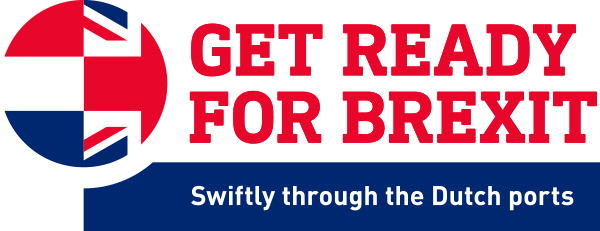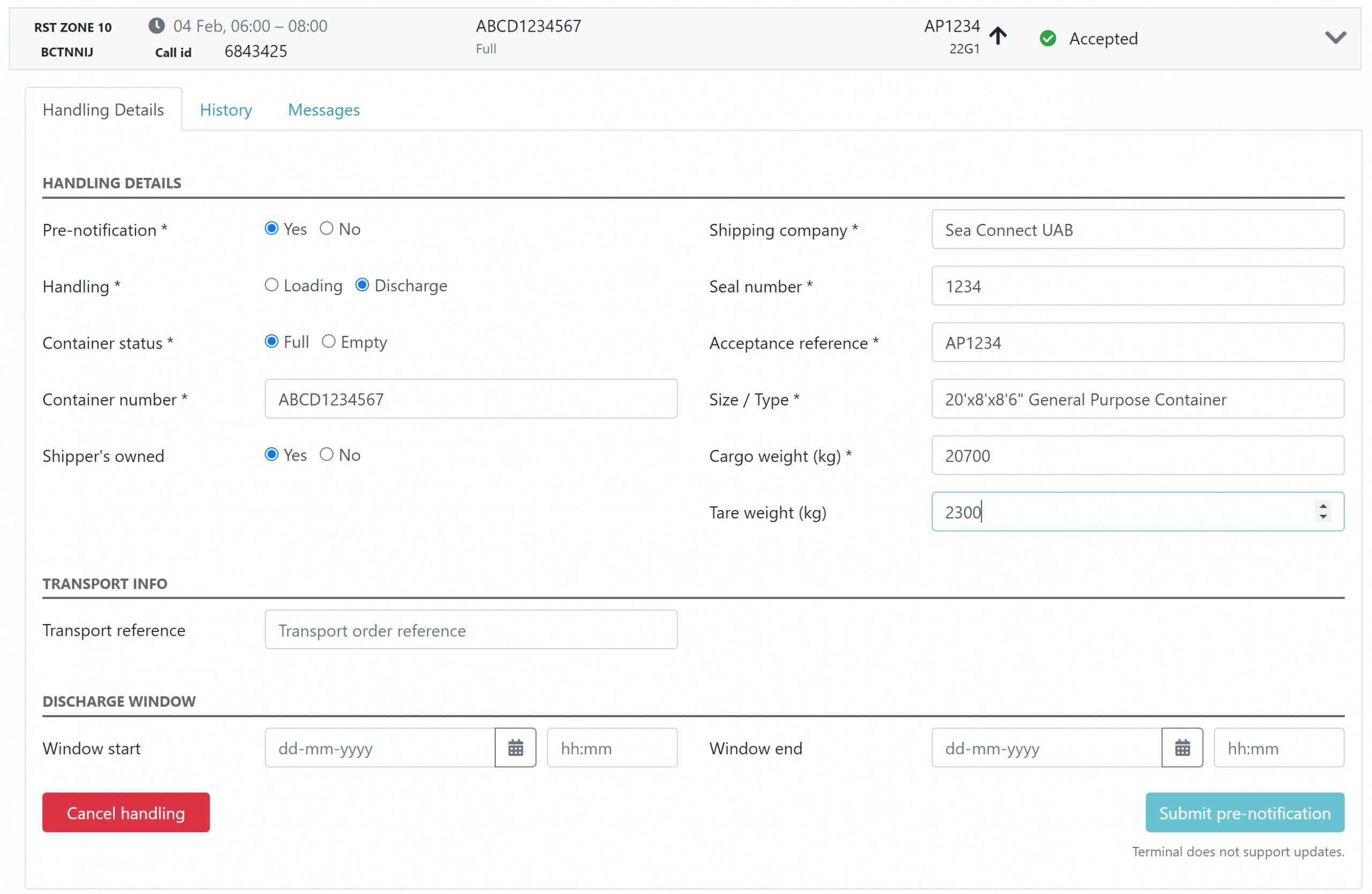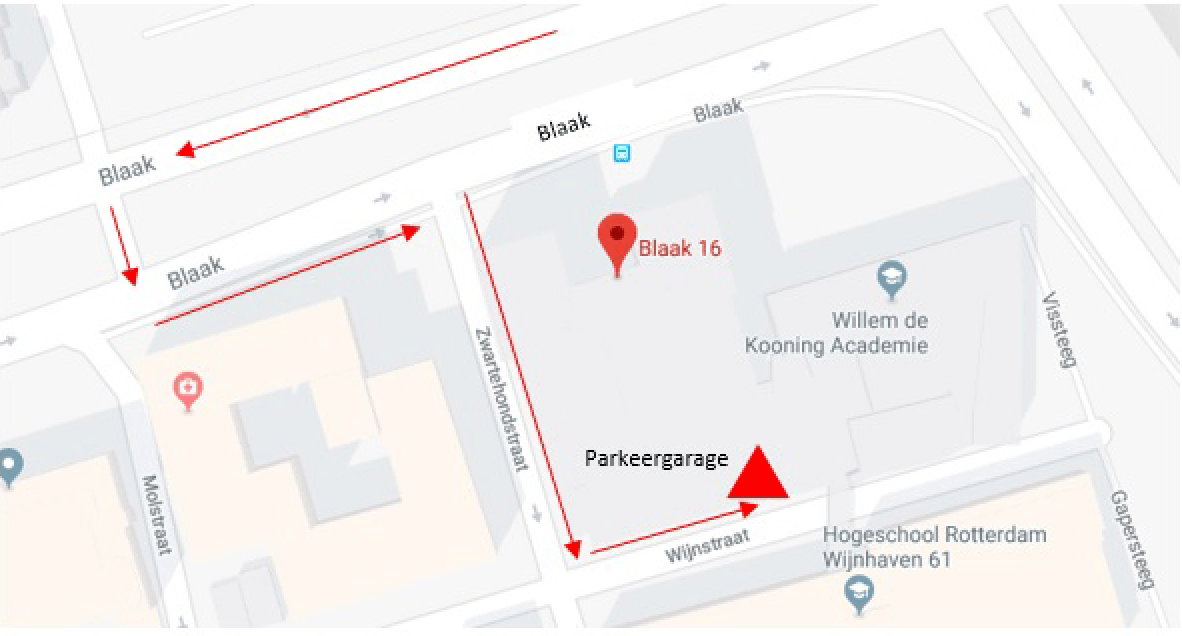‘Get Ready for Brexit’ to speed businesses’ passage through Dutch ports
Today, together with Portbase, cooperating branch organisations in the Dutch ports are launching the website www.getreadyforbrexit.eu/en. Here, exporters, importers and their logistic service providers will be able to see at a glance what they will need to do to maintain quick transport of their cargoes to and from the United Kingdom through the Dutch ports; even after the Brexit. The website’s launch marks the kick-off of an international campaign that is intended to guide the entire logistical chain through preparations for the Brexit.
The site www.getreadyforbrexit.eu is aimed at informing and activating parties in the logistical chain, including importers, exporters, carriers/hauliers and forwarders. A customer journey has been defined for each target group. These step-by-step journeys set out which action must be done, by whom and when, in order to be able to import and export goods swiftly through the Dutch ports after 29 March 2019. The cooperating parties are calling on the logistical chain to take part in the shared solution for Brexit in the Dutch ports. This uniform approach will ensure smooth, rapid handling of the Customs formalities that will result from the Brexit.
An approach for Dutch ports
The initiators of ‘Get Ready for Brexit’ are Portbase, port business association Deltalinqs, the interest groups FENEX, evofenedex, and Transport and Logistics Netherlands (TLN)/AFTO. Together with Dutch Customs, the Port of Rotterdam Authority, Port of Amsterdam, the ferry operators and the shortsea terminals, they have been working since September of this year to realise a single Dutch chain solution for Brexit in the Dutch ports that complies with European legislation. The elements of this approach combine to enable 100% digital and automated handling of Customs formalities, including optimum reuse of data. All information precedes the cargo. A single entry point for all terminals will be created, for both shortsea and ferry traffic. This will open the door to clever Customs supervision with minimum detriment to the process. Following the Brexit, it will become even more attractive to transport goods to and from the United Kingdom via the Dutch ports. Portbase Director Iwan van der Wolf: “As a national Port Community System, Portbase has a coordinating role in establishing the necessary agreements within the community and developing the required IT process. Already, a great deal has been achieved in recent months, and all participating parties have embraced a central working method. But this is no time for us to sit back and relax – 29 March will be here before you know it. And at that point, we must be truly prepared.”
A new reality
The imminent Brexit will create a new reality for the logistical chains between the Netherlands and the United Kingdom. Whatever the outcome of the political negotiations, every conceivable form of Brexit will create Customs obligations for shortsea and ferry traffic. In the (likely) case of a ‘no deal’, these formalities will go into effect immediately after29 March 2019. And even if there is a ‘soft’ Brexit, Customs formalities will be an inevitable result in the near future – something many people do not seem to realise. “By preparing our logistical chain together – here and now – all cargoes can continue to move swiftly through the Dutch ports post-Brexit. If we don’t, we’ll all be standing still together following the Brexit instead,” according to Steven Lak from port business association Deltalinqs.
Mutual interdependence
If the Dutch port solution is to succeed, each and every link in the logistical chain must participate and make its own timely preparations. When one party fails to comply with Customs formalities in time, everyone in the chain will stand still. From exporters, importers and Customs agents to hauliers, terminals, shipping company, shipbrokers and ferry operators, every party has a duty and a responsibility. If everyone consistently acts in a timely fashion and passes on the correct information, including Customs details, all cargoes will continue to move to and from the United Kingdom via the Dutch ports after the Brexit. Director of evofenedex Bart Jan Koopman: “That’s why this international campaign is so incredibly important. The transport chain extends deep into the hinterland. Shippers and hauliers in Poland and Germany also need to know which steps to take to make sure that, after Brexit, they can transport their goods quickly – and with a minimum of hassle – to and from the United Kingdom via the Dutch ports.



